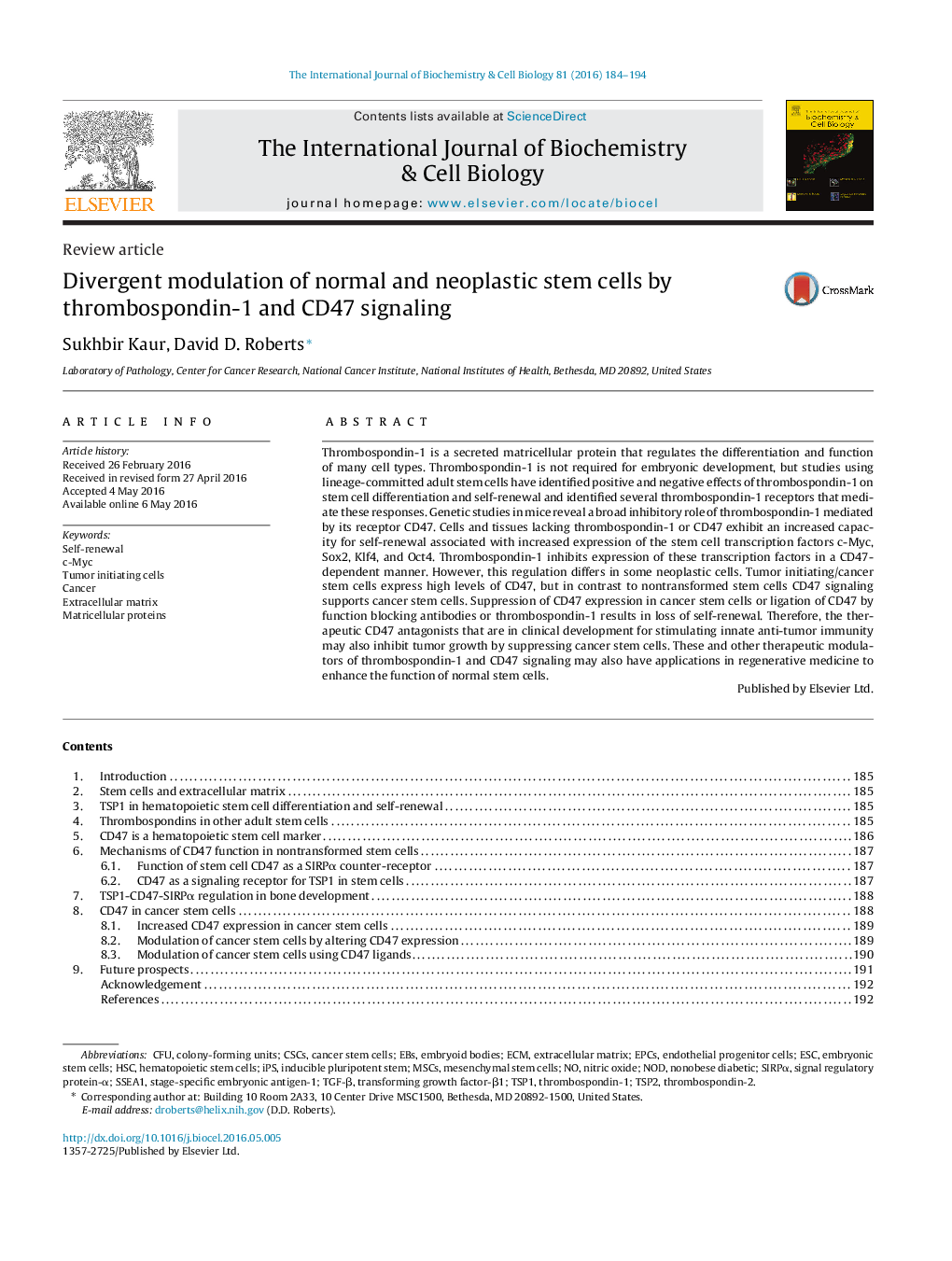| Article ID | Journal | Published Year | Pages | File Type |
|---|---|---|---|---|
| 5511519 | The International Journal of Biochemistry & Cell Biology | 2016 | 11 Pages |
Thrombospondin-1 is a secreted matricellular protein that regulates the differentiation and function of many cell types. Thrombospondin-1 is not required for embryonic development, but studies using lineage-committed adult stem cells have identified positive and negative effects of thrombospondin-1 on stem cell differentiation and self-renewal and identified several thrombospondin-1 receptors that mediate these responses. Genetic studies in mice reveal a broad inhibitory role of thrombospondin-1 mediated by its receptor CD47. Cells and tissues lacking thrombospondin-1 or CD47 exhibit an increased capacity for self-renewal associated with increased expression of the stem cell transcription factors c-Myc, Sox2, Klf4, and Oct4. Thrombospondin-1 inhibits expression of these transcription factors in a CD47-dependent manner. However, this regulation differs in some neoplastic cells. Tumor initiating/cancer stem cells express high levels of CD47, but in contrast to nontransformed stem cells CD47 signaling supports cancer stem cells. Suppression of CD47 expression in cancer stem cells or ligation of CD47 by function blocking antibodies or thrombospondin-1 results in loss of self-renewal. Therefore, the therapeutic CD47 antagonists that are in clinical development for stimulating innate anti-tumor immunity may also inhibit tumor growth by suppressing cancer stem cells. These and other therapeutic modulators of thrombospondin-1 and CD47 signaling may also have applications in regenerative medicine to enhance the function of normal stem cells.
